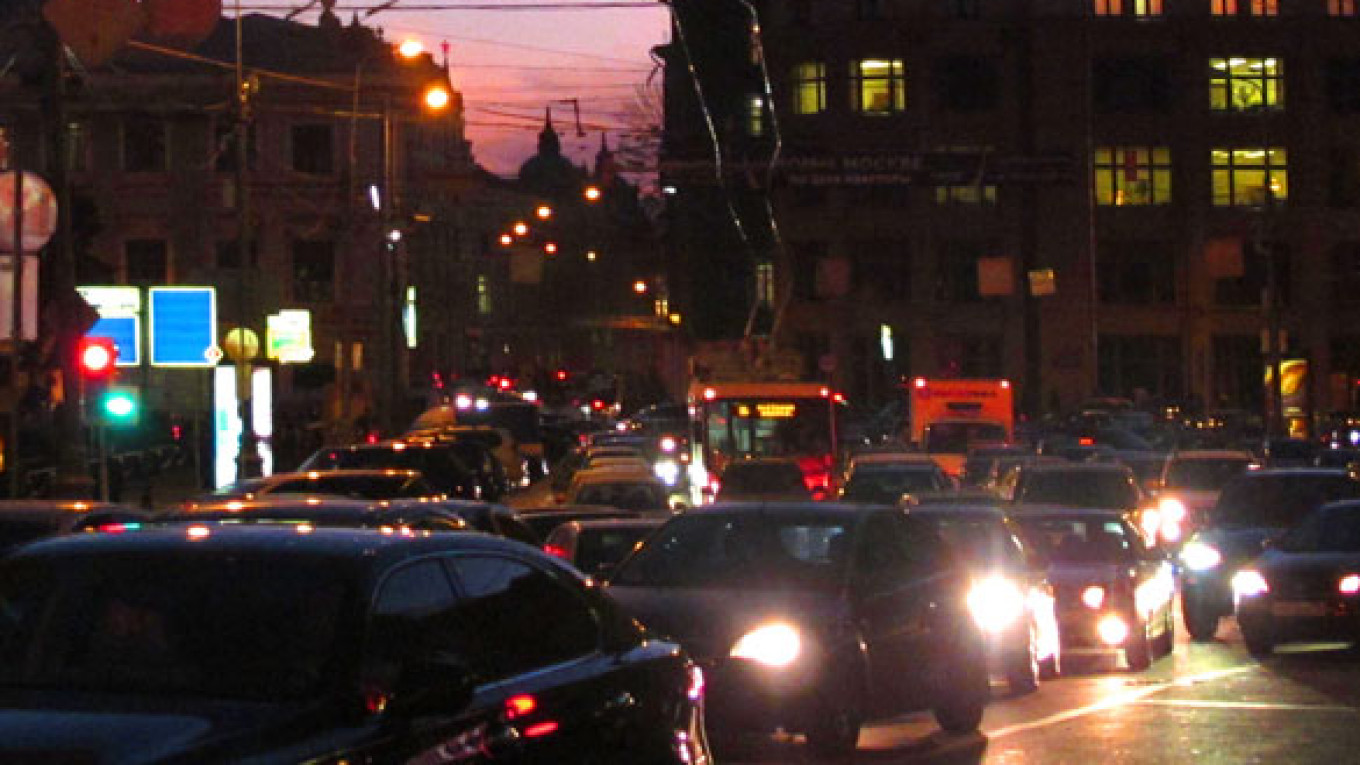The Yandex.Probki online traffic monitoring service identified the 30 road bottlenecks that cause the longest jams during rush hours citywide, listing them in a report released Tuesday.
The research, based on October data, examined spots on Moscow roads where vehicles have to slow down the most before getting a chance to speed up for at least three kilometers afterward. Perpetually jammed lanes were not covered by the study.
The list for the morning rush hour on weekdays is topped by the crossing of Volgogradsky Prospekt and Lyublinskaya Ulitsa, in southeastern Moscow, which takes drivers about 32 minutes to pass through at an average speed of three kilometers per hour, the report said.
Other troublesome morning bottlenecks include the crossing of Ulitsa Lyotchika Babushkina with Prospekt Mira by the Shosse Entuziastov metro station in the northeastern part of the city and Kashirskoye Shosse near the Kashirskaya metro station in the south. Drivers lose at least 30 minutes at each spot, the report found.
In the evening, the intersection of Leningradskoye Shosse and the Moscow Ring Road on the city's northern outskirts is the worst bottleneck, with motorists losing an average of 30 minutes in the area, the report said.
The inner side of the Third Ring Road beyond the overpass above Shmitovsky Proyezd in western Moscow and the downtown 1st Tverskaya-Yamskaya Ulitsa, near Belorussky Station also made the list of evening's worst bottlenecks, the report said.
The researchers wanted to examine not just Moscow's busiest roads, but spots that “lead to the appearance of traffic jams in the city,” Tatyana Komarova, a spokeswoman for Yandex.Probki, told The Moscow Times.
Traffic jams were recently highlighted as the city's most urgent problem by both President Dmitry Medvedev and Mayor Sergei Sobyanin. Earlier this month, City Hall released a draft of its plan to improve the situation, complete with measures such as creating toll roads and new parking lots, removing many pedestrian street crossings, and banning trucks from entering the city during daylight hours.
Komarova said Yandex.Probki decided to conduct the study based on City Hall's initiatives, although the authorities did not directly ask them to conduct it. Moscow authorities did not comment on the research Tuesday.
“I doubt that we would have done the research without the vivid public interest about the problem, which was sparked by City Hall's plans,” Komarova said by e-mail.
U.S. search giant Google also launched a traffic service in Moscow earlier this year, although Yandex, the local market leader, remains the most used service for live updates on the city's congested roads.
A Message from The Moscow Times:
Dear readers,
We are facing unprecedented challenges. Russia's Prosecutor General's Office has designated The Moscow Times as an "undesirable" organization, criminalizing our work and putting our staff at risk of prosecution. This follows our earlier unjust labeling as a "foreign agent."
These actions are direct attempts to silence independent journalism in Russia. The authorities claim our work "discredits the decisions of the Russian leadership." We see things differently: we strive to provide accurate, unbiased reporting on Russia.
We, the journalists of The Moscow Times, refuse to be silenced. But to continue our work, we need your help.
Your support, no matter how small, makes a world of difference. If you can, please support us monthly starting from just $2. It's quick to set up, and every contribution makes a significant impact.
By supporting The Moscow Times, you're defending open, independent journalism in the face of repression. Thank you for standing with us.
Remind me later.


